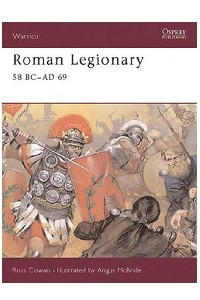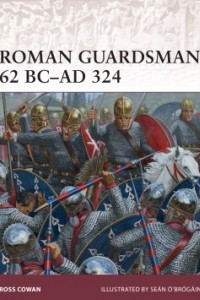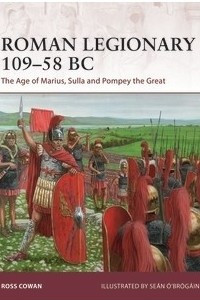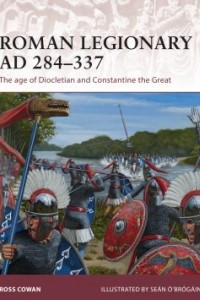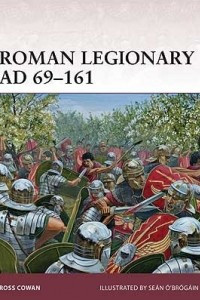- Главная
- Авторы
- Ross Cowan
- Книги Ross Cowan
Книги Ross Cowan
Ross Cowan - автор 5 книг. Из известных произведений можно выделить: Roman legionary: 58 BC - AD 69, Roman Guardsman 62 BC–AD 324, Roman Legionary 109–58 BC: The Age of Marius, Sulla and Pompey the Great. Все книги можно читать онлайн и бесплатно скачивать на нашем портале.
The period 31 BC-AD 43 saw the greatest expansion of the Roman Empire. In 31 BC Octavian defeated Antony at the battle of Actium and remodelled the semi-professional Roman army into a permanent force of 28 legions. Octavian became the first emperor (Augustus) and under his leadership the legions conquered northern Spain, all Europe south of the Danube line and Germany west of the Elbe. The legiona...
From the civil wars of the Late Republic to Constantine's bloody reunification of the Empire, elite corps of guardsmen were at the heart of every Roman army. Whether as bodyguards or as shock troops in battle, the fighting skills of praetorians, speculatores, singulares and protectores determined the course of Roman history. Modern scholars tend to present the praetorians as pampered, disloyal and...
The Roman centurion, holding the legionaries steady before the barbarian horde and then leading them forward to victory, was the heroic exemplar of the Roman world. This was thanks to the Marian reforms, which saw the centurion, although inferior in military rank and social class, superseding the tribune as the legion's most important officer. This period of reform in the Roman Army is often overl...
Diocletian and Constantine were the greatest of the Late Roman emperors, and their era marks the climax of the legionary system. Under Constantine's successors the legions were reduced in size and increasingly sidelined in favour of new units of elite auxilia, but between AD 284 and 337 the legions reigned supreme. The legionaries defeated all-comers and spearheaded a stunning Roman revival t...
Between AD 69 and 161 the composition of the Roman legions was transformed. Italians were almost entirely replaced by provincial recruits, men for whom Latin was at best a second language, and yet the ‘Roman-ness' of these Germans, Pannonians, Spaniards, Africans and Syrians, fostered in isolated fortresses on the frontiers, was incredibly strong. They were highly competitive, jealous of their hon...

